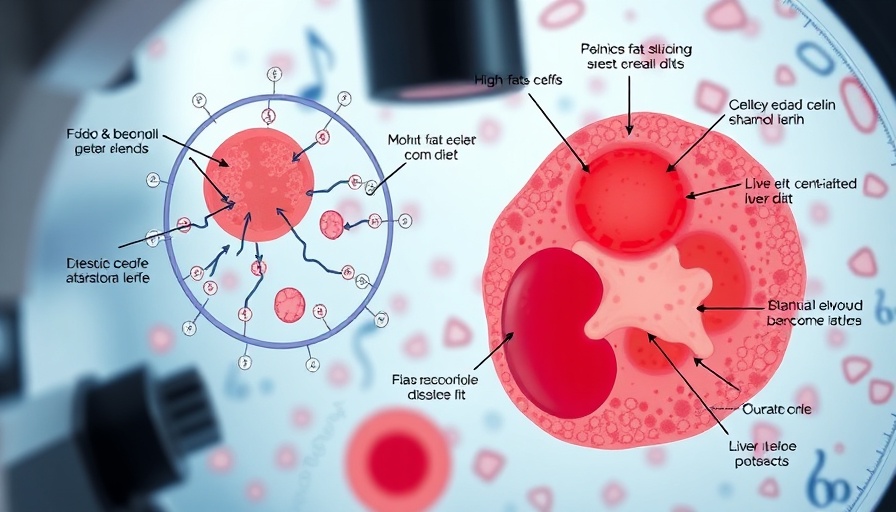
The Impact of Maternal Diet on Fetal Health
When it comes to pregnancy, the adage "you are what you eat" takes on new meaning, particularly when viewed through the lens of a mother's diet. A new study published in the journal Liver International highlights how a high-fat diet consumed by expectant mothers can not only affect their health but has far-reaching consequences for their unborn babies. Researchers found that a diet rich in fats and sugars can lead to liver stress in fetuses, potentially laying the groundwork for future metabolic disorders such as metabolic dysfunction-associated steatotic liver disease (MASLD), affecting up to 30% of youth as they grow.
The Role of Bile Acids in Liver Health
Bile acids play a crucial role in the digestive process, helping to absorb dietary fats. However, they become toxic when present in excessive amounts, especially in fetuses, who lack the ability to detoxify them effectively. If bile acids fail to circulate back to the mother for detoxification, they accumulate in the fetal liver. This accumulation is concerning, as it creates a pathway toward adult liver diseases, especially those related to obesity and diabetes.
Understanding the Links to Metabolic Disorders
Research indicates that by the time they reach juvenile stages, offspring from mothers on high-fat diets may show signs of liver damage, including an increase in collagen levels, which is a marker for fibrosis. These changes are particularly alarming as they continue into later life, irrespective of the diet of the child post-weaning. A healthy maternal diet is paramount during pregnancy—not only to maintain maternal health but also to assure the healthy development of the fetus.
Community Health Insights
Understanding the implications of maternal nutrition on fetal health is crucial. The increasing prevalence of obesity and poor diet in mothers may perpetuate cycles of health issues passed down to their children. Initiatives aimed at improving diet in expectant mothers must be linked with community health and wellness programs. Educational resources that focus on healthy eating during pregnancy can empower women to make choices that can influence their children’s metabolic health for years to come.
Real-World Implications and Future Trends
The findings from this research pose significant questions regarding public health interventions. As studies like these underline the fetal origins of metabolic disease, they stimulate a need for preventive strategies, such as community health initiatives focused on maternal nutrition. By providing resources and support for healthy eating habits among expectant mothers, we can aim to break the cycle of obesity and prevent the cascading effects related to poor dietary choices.
A Call for Action
As individuals, families, and communities, we are all part of the solution to foster a healthier future generation. Both access and education about healthy food choices are paramount in reducing the risk of metabolic diseases stemming from maternal diets. If you're interested in learning how to promote healthy lifestyle choices, consider engaging with local health and wellness programs that focus on maternal and child health. Together, we can encourage nutritional awareness and foster environments that enable better health outcomes for future generations.
In conclusion, the connections between a mother's diet during pregnancy and her child's long-term health outcomes cannot be overstated. By prioritizing healthy choices, it’s possible to reduce the future risk of obesity and associated disorders.
 Add Row
Add Row  Add
Add 




 Add Row
Add Row  Add
Add 


Write A Comment